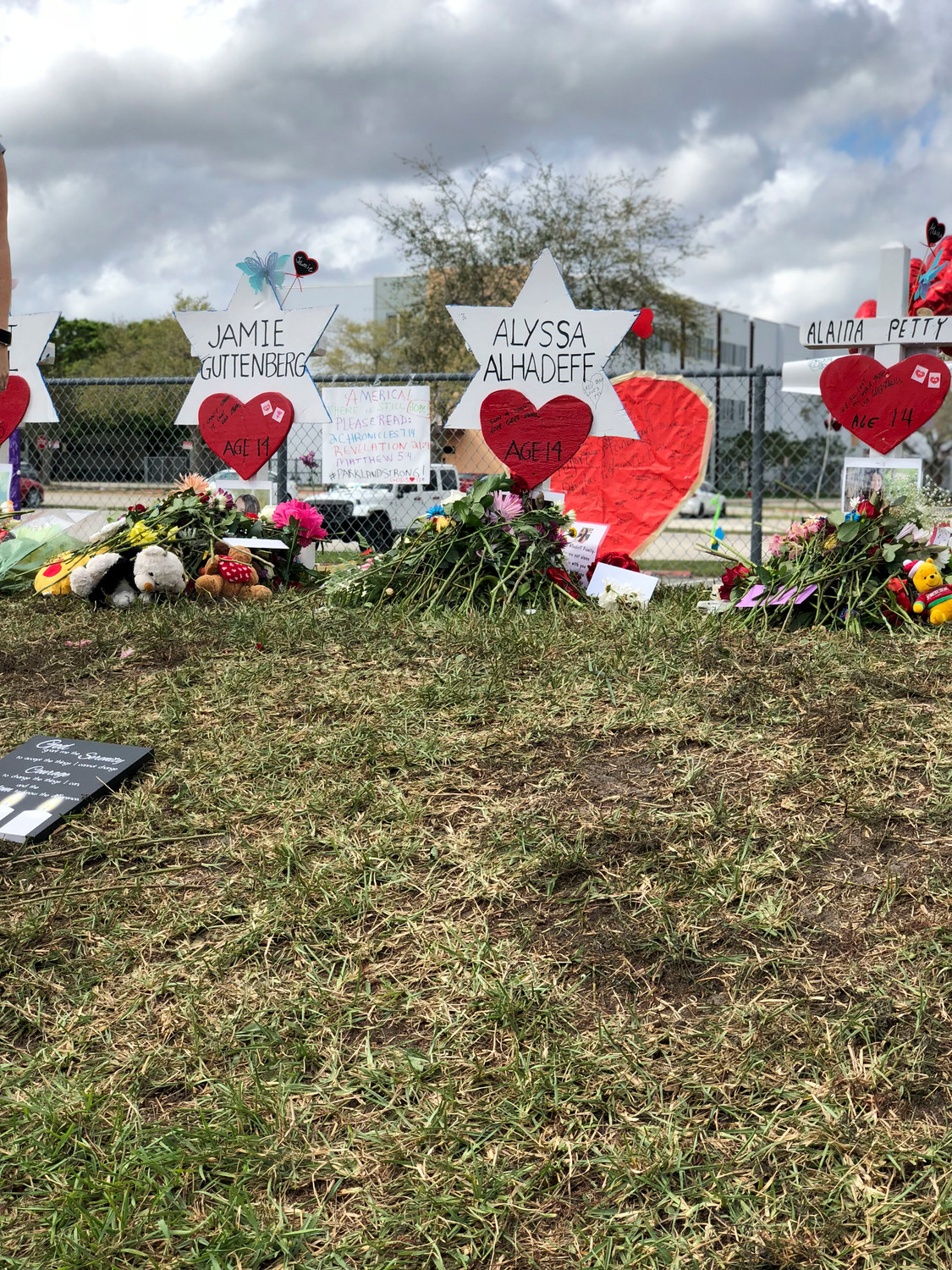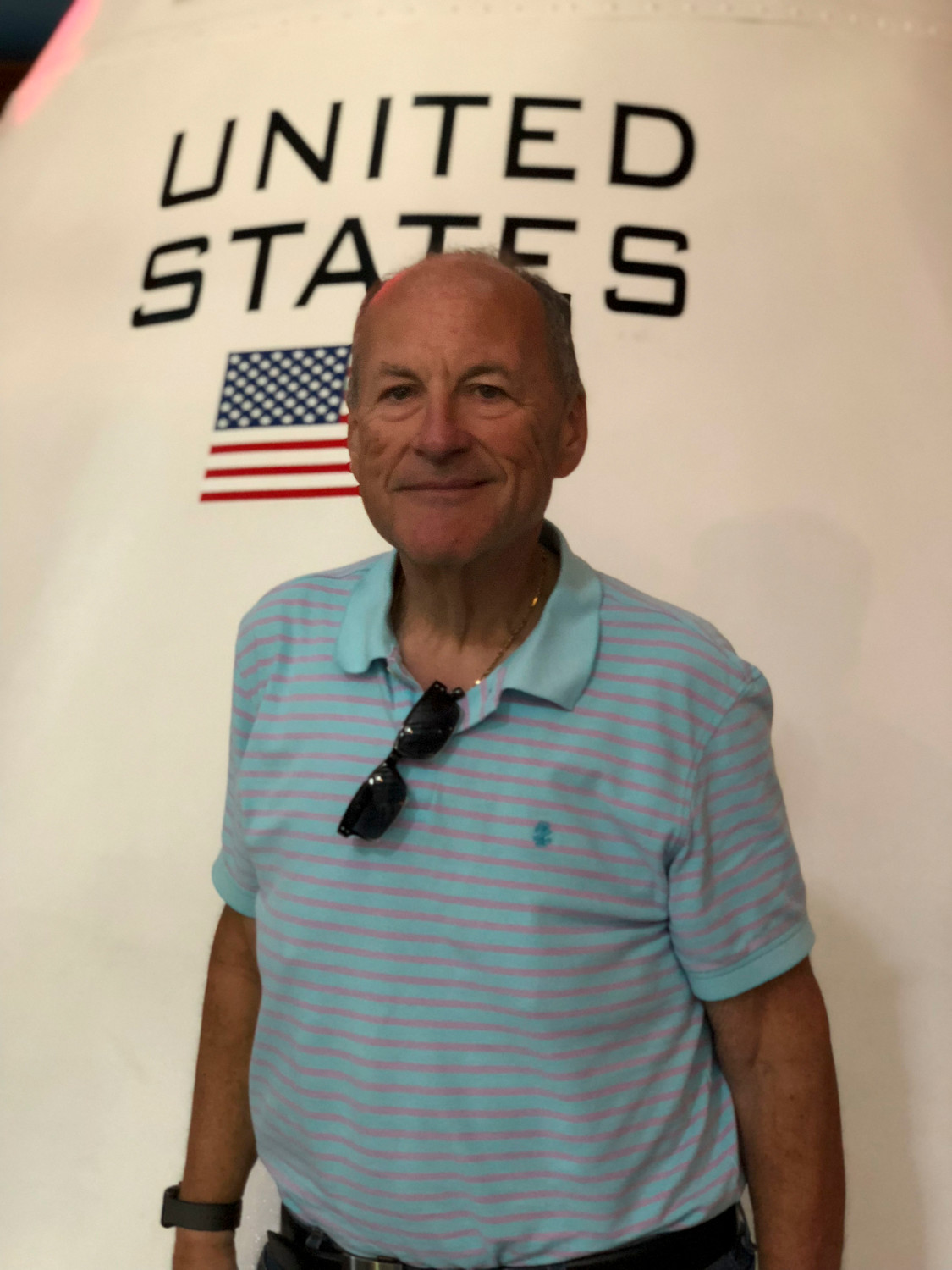Long Beach native: Parkland students call for change
Former resident says Florida community galvanized in wake of school shooting

Former Long Beach resident Neil Vogel and his wife, Jill, moved to Parkland, Fla., shortly after Hurricane Sandy, and also survived the devastation caused by Hurricane Irma in southern Florida last year.
“We lost half of our home in Sandy, and we’ve been through two major storms now,” said Vogel, 65, the former president of Long Beach’s Temple Emanu-El. “We knew after Sandy that we had to take steps to be prepared.”
But nothing prepared him for the tragedy at Marjory Stoneman Douglas High School — just five minutes from his home — on Feb. 14, when 17 students and teachers were killed in one of the nation’s deadliest school shootings.
“I was driving back from shopping, and all of a sudden, from every direction, there were police cars and ambulances,” Vogel recounted. “I rode my bike by the school the other day and I cried like a baby — it just breaks your heart. What do you say to these parents? They sent their kids off to school, and their kids never came home.”
Vogel, who led the Long Beach synagogue until last week, visits Long Beach often, and still has strong ties to the community. Three of the students who were killed, he said, lived in his neighborhood of Heron Bay, a community of 10,000 that includes 20 percent of all Parkland residents.
“Three of the kids lived in the development,” he said. “It’s just awful, and everyone is still reeling. There’s a sense of devastation. But what’s really striking is the activism that people are feeling — it’s time to make Parkland the place where we finally say enough is enough.”
Vogel was referring to the calls among students — and many Parkland residents — for stricter gun-control laws and action from lawmakers. The survivors have organized a rally on March 24 in Washington to protest mass shootings, an event that is expected to attract 500,000 people, the Washington Post reported.
The “March for Our Lives” will have sister marches in other major cities — including one in Long Beach’s Kennedy Plaza from 2 to 4 p.m. — and, in the meantime, students across the nation plan to walk out of classes on March 14 to call for stricter gun-control legislation.
“The kids have been so professional in the way that they’ve handled themselves,” Vogel said. “They’re really trying to make change, and they realize that, down the road, they’ll have a great amount of political influence.”
He added that Parkland was voted the safest community in Florida last year.
“I know people in Long Beach are sympathetic to the cause, because it can happen anywhere,” Vogel said.
On Feb. 28, the Heron Bay Community Association, the largest homeowners’ association in Florida’s Broward County, passed a local ordinance prohibiting semiautomatic or automatic assault weapons and large-capacity ammunition feeding devices in Heron Bay.
“As our community has been devastated by this tragedy and the loss of our own residents — Alaina Petty, Joaquin Oliver and Alexander Schachter — we will proactively move to protect our residents, families, and visitors where government has failed,” the association said in a letter to residents. “We feel morally compelled to lead by example.”
The measure was approved after members of the association said that on Feb. 20, Florida lawmakers refused by an overwhelming majority to debate a bill banning assault weapons.
“It’s really symbolic, that’s the important take-away,” said Vogel, the association’s treasurer. “If we take the first step, talking about assault weapon regulations, this could piggy-back onto other communities and show kids that we care. Parkland is going to be known as the beginning of the end of this type of violence.”

 44.0°,
Mostly Cloudy
44.0°,
Mostly Cloudy 




